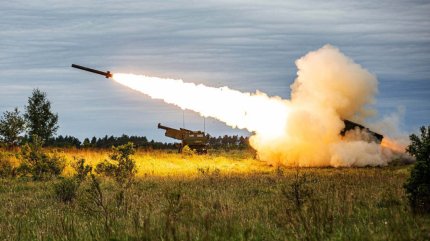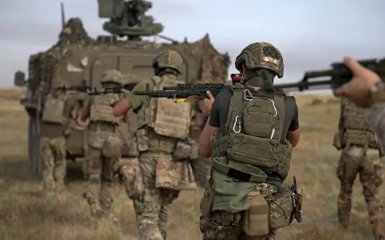The stunning success of the offensive of the Ukrainian Armed Forces in Kurshchyna will go down in the world history of wars, but this same history contains examples that, according to Western analysts, it would be good for the Ukrainian military to remember.
Points of attention
- The Ukrainian military can learn from historical examples like Long Island, Incheon, and the Kursk arc to improve the management of the offensive in Kurshchyna.
- Defensive preparedness after the climax of the offensive is crucial to avoid risks of defeat, as demonstrated by past military campaigns.
- Strategic prudence, professionalism, and understanding the enemy's intentions are vital for the success of military operations.
- Avoid overestimating capabilities and risk factors by learning from past mistakes and ensuring a balanced approach to offensive actions.
- Lessons from historical examples underscore the significance of defending the homeland in wartime and engaging in bold yet calculated military operations.
What historical examples should the Ukrainian military remember when conducting an offensive in Kurshchyna
Military analysts - retired US Army colonel John Gentile and historian Adam Givens note that the real purpose of the offensive of the Ukrainian military in Kurshchyna remains unknown.
In particular, analysts recall that in the fall of 1776, George Washington's army in the struggle for the independence of 13 colonies against the British military suffered a crushing defeat in the Battle of Long Island.
A large number of American troops wanted to end the war after this defeat, but Washington refused to do so.
Instead of ending the war, he directed the remnants of the defeated army to attack enemy garrisons in Princeton and Trenton in southern New Jersey.
After crossing the Delaware River, Washington caught the British by surprise and defeated both outposts.
The capture of Princeton and Trenton effectively cut off British outposts to the west from their main base in New York.
This forced the British military to flee to New York, and the unexpected victory of the rebel army allowed to seize the initiative in the war.
As a second example, analysts cite the example of the sea landing in the area of the city of Incheon in September 1950 by the UN army, which consisted of the American military and the Republic of Korea. It was led by General Douglas MacArthur.
It is noted that at that time the vast majority of American and South Korean forces were trapped in the extreme south of the Korean Peninsula.
MacArthur decided to land right in the center of the peninsula and thus cut it in half, forcing North Korea to either withdraw its troops or lose them in the encirclement.
Because such an operation was considered too risky, MacArthur could not get permission to carry it out.
In a way, the opposition to MacArthur's Inchon Plan is reminiscent of the criticism that Ukraine received in the first days of the Kursk invasion. The operation was too risky, argued skeptics. Ukrainian troops were already heavily deployed along the front line with Russia, and they could not afford the material and human costs that an invasion of Kurshchyna would cause, Gentile and Givens emphasize.
But the Incheon landing worked. This allowed the UN troops to make a quick breakthrough and de-occupy the entire territory of South Korea in a short period of time.
However, in the end, MacArthur overestimated his talents and luck.
As he continued to drive the North Korean army northward, the cocky general ignored clear intelligence that the Chinese army was preparing to enter the war on Pyongyang's side.
At the end of October 1950, the Chinese massively crossed the border and attacked the UN troops, inflicting a painful defeat on them.
Over the next few months, the Chinese army pushed the Americans all the way to Seoul, and the bloody war that seemed almost won dragged on for more than two years.
MacArthur's lesson for Ukraine is this: don't let the initial success of bold military action breed unbridled confidence; do not be so confident in your skill as to neglect the capabilities and intentions of your enemy, analysts warn.
As a third example, they cite the story when, in the summer of 1943, the Soviet army controlled the protrusion of the front line around Kursk, which was called the Kursk arc.
On July 4, the German army launched a bold and decisive offensive, seeking to deprive the USSR army of this bridgehead.
Within a month, it became clear that the offensive of the German military had failed, and the Soviet army launched a counteroffensive, as a result of which it was possible to regain control over almost the entire Left Bank of Ukraine.
Analysts point out that one of the reasons for the defeat of the army of Nazi Germany was fighting for the expansion of territories, which almost did not motivate German soldiers.
Instead, Soviet soldiers believed that they were fighting for the survival of their own people and state, which is a much more powerful motivation.
What analysts advise the Ukrainian military to pay attention to
Today, Kursk teaches many lessons for Ukrainians. Despite the audacity of the current invasion, Ukrainians must be prepared to accept when the advance of their military forces reaches its climax. They will inevitably reach a point where, if they do not go on the defensive — either in Kursk or in Ukraine — they risk suffering a catastrophic defeat, analysts emphasize.

Gentile and Givens also believe that modern Russians, and Vladimir Putin in particular, should learn a lesson from Germany's defeat in World War II: an enemy that defends its homeland in a struggle for its existence is difficult to defeat.
This is especially true when the enemy engages in bold, risky operations that are sequential and supported by subsequent objectives achieved.



